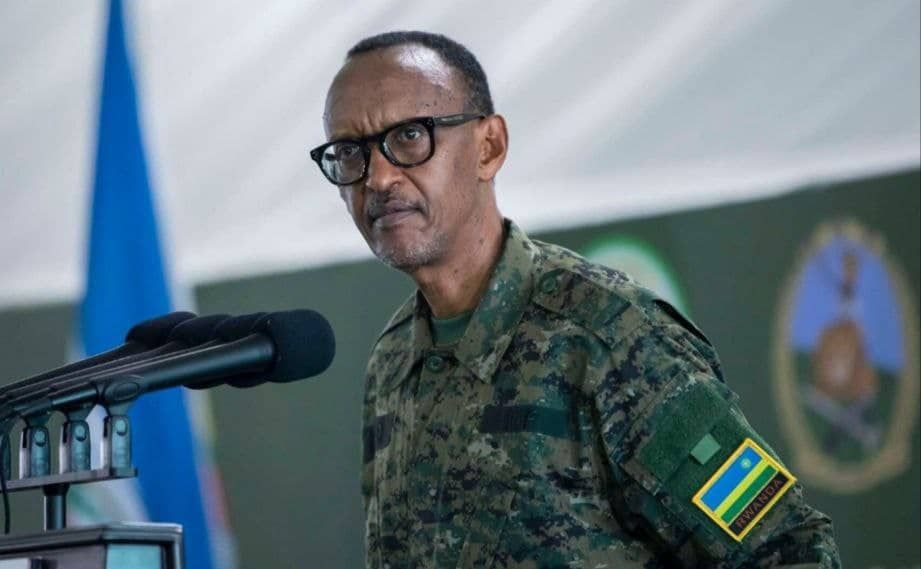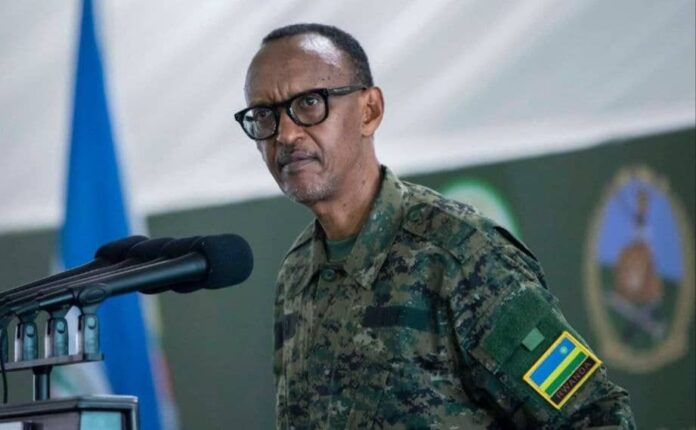By Burnett Munthali
In an unprecedented move, African citizens have taken to President Paul Kagame’s official Facebook page to express their dissatisfaction with his leadership, marking a rare moment of direct engagement with a sitting head of state. The live session, which was meant to be an opportunity for the Rwandan president to address his followers and share updates, turned into a fiery confrontation as people from across the continent aired their grievances openly.
The live session, which was streamed on Kagame’s official Facebook page, began like many others, with the president offering brief remarks on Rwanda’s development and his vision for the country. However, what was expected to be a routine communication quickly escalated as viewers began flooding the comment section with questions and comments that challenged Kagame’s policies and leadership style.

It was evident that the session was not going as planned, as the comments grew increasingly critical. Many of the responses were from Africans who took the opportunity to directly address Kagame, calling out his administration on a variety of issues. Some criticized the lack of political freedoms and human rights in Rwanda, while others questioned his long-standing rule, which has seen Kagame in power for nearly two decades.
“Why is it that anyone who opposes you gets silenced?” one comment read. “Rwanda is not a democracy; it’s a dictatorship in disguise,” another user stated. These comments, among many others, came from individuals who were determined to challenge Kagame’s narrative, raising concerns about political repression, media freedom, and the limits placed on political opposition in Rwanda.
The intensity of the responses reflected a growing sentiment across the continent that African leaders must be held accountable for their governance. With social media becoming an increasingly powerful tool for public discourse, the live session became an open forum for voicing discontent. The ability for ordinary citizens to directly address the president in real-time highlighted the power of digital platforms in shaping political conversations and providing a space for citizens to hold leaders accountable.
President Kagame, known for his assertive leadership style, did not shy away from responding to some of the criticisms. However, his responses were measured, often reiterating his focus on development and the achievements of his government, including Rwanda’s economic progress, healthcare advancements, and strides in education. Kagame’s supporters also joined the live session, defending his leadership and highlighting the positive changes made under his administration. These supporters argued that while criticisms should be welcomed in a democracy, they should also recognize the strides made in stabilizing Rwanda after the 1994 genocide.
Despite the back-and-forth, the session’s tone was undeniably more confrontational than what would typically be expected from such a platform. The event seemed to mark a shift in how African leaders engage with their citizens in the digital age, where social media has become an increasingly direct avenue for public engagement, criticism, and protest.
The clash between Kagame and his critics on his own Facebook page is a microcosm of a larger debate within Africa about governance, leadership, and democracy. For many citizens, it was an opportunity to speak truth to power, to challenge a leader who has been in power for an extended period and who has often been praised for his role in Rwanda’s post-genocide recovery, but also criticized for curbing political freedoms and silencing opposition.
This public confrontation has sparked a broader conversation about the role of social media in African politics. While many view it as a democratizing force that empowers citizens to engage with their leaders, others warn that it could also lead to greater polarization and online vitriol. The incident underscores the growing importance of digital platforms in African political discourse and highlights the challenges leaders face in navigating public opinion in the age of social media.
As the live session continued, it became clear that social media is not just a tool for political leaders to broadcast their messages but also a platform for citizens to engage in real-time, express dissatisfaction, and challenge those in power. This moment of public confrontation is indicative of a broader shift in African politics, where citizens are increasingly empowered to hold their leaders accountable in ways that were once unimaginable.
Whether this online confrontation will have any lasting impact on Kagame’s political trajectory remains to be seen. However, the sheer volume of criticism he faced during the session suggests that many Africans are ready to challenge the status quo and demand more from their leaders. It serves as a reminder that in the digital age, no leader is immune from the scrutiny of their citizens, and the power of social media is reshaping how leaders interact with the public.
As the conversation surrounding Kagame’s leadership continues to unfold, this incident may serve as a pivotal moment in the growing movement for political accountability across Africa. It remains to be seen how Kagame will respond in the coming days, but one thing is clear: the relationship between African leaders and their citizens is increasingly being shaped by the power of social media, and it is a force that cannot be ignored.



